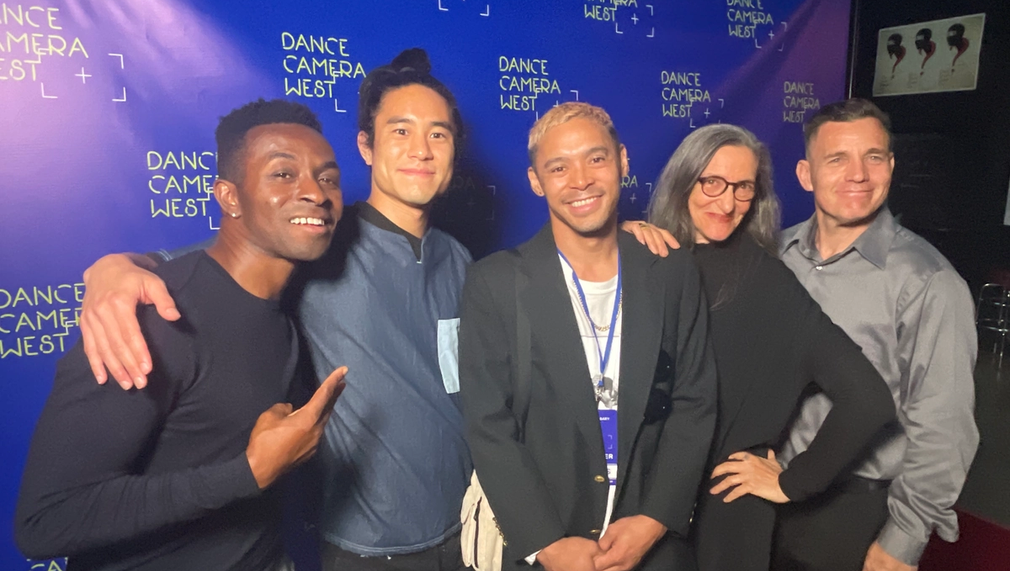MENTORSHIP FOR BIPOC/FEMALE FILMMAKERSSS
DCW requests a grant to continue to mentor underrepresented artists (Black, Indigenous, People of Color and Women) to make dance films, by providing access to skills and knowledge of established BIPOC/FEMALE filmmakers, a sustainable artist fee and production assistance. DCW intends to utilize its position as a world leader in the field, to usher in distinctive, necessary, new voices. The program will provide choreographers access to a filmmaking education, equipment and industry networks often unattainable to them.

What is the primary issue area that your application will impact?
BIPOC- and Women-Owned Businesses
In which areas of Los Angeles will you be directly working?
County of Los Angeles
In what stage of innovation is this project, program, or initiative?
Expand existing project, program, or initiative
What is your understanding of the issue that you are seeking to address?
Artist Scholar Cara Hagan wrote, “white performers have always been over represented as compared to performers of color with regard to the US population. The report also pointed out discrepancies behind the camera. In 2017 just 12.6 of Hollywood directors were people of color. Despite efforts to bolster racial diversity...it is evident that there are barriers to having a more diverse submission pool that goes beyond an assumption or perceived reality that works featuring or created by people of color simply do not exist.” (Screendance from Film to Festival, 2022) The field is dominated by well-funded, European men and women, with extensive training and budgets. Most women and BIPOC artists work in a DIY self-produced method. Our intention to decolonize the field and level the playing field for those traditionally shut out with education, funding and presentation. We have increased representation in the few short years of this project. This success encourages us to continue.
Describe the project, program, or initiative this grant will support to address the issue.
When the COVID epidemic paused live events dance was translated onto screens, DCW became acutely aware that we need to be at the forefront of production of new dance films. We took this opportunity to work directly with underrepresented artists, by creating a groundbreaking mentorship program. The DCW Finishing Fund program will provide more choreographers with a production team, equipment and mentor to make a dance for the screen. Choreographers will be selected from local dance festivals that highlight the work of women and BIPOC artists such as Blacktinx, Los Angeles Dance Festival, and REDCAT’s NOW festival. Choreographers will be paired with a producer/mentor to gain an "education" on best practices for dance-film making, including lighting, sound, storyboarding, camera operation, editing and post production. Artists will be given eight weeks to create a film. The mentors and filmmakers will be chosen based on artistic excellence and their ability to collaborate as equal creative partners, encouraging a consensual creative dialogue wherein DCW asks what the artists need and supports those needs. Films will be presented at the DCW annual film festival, where artists will be invited to speak about the process. Following the creation and presentation of the films at the annual festival, the films become of the DCW touring program, as well as streaming platforms DCW has partnered with, providing revenue to the filmmakers.
Describe how Los Angeles County will be different if your work is successful.
DCW has produced and premiered six films by BIPOC filmmakers. DCW's support has elevated the work with paid artist fees, distribution and promotion at international venues. Testimonials: “I am forever grateful to have been a DCW BIPOC grant recipient. This program offered mentorship, but also the opportunity for professional development and networking at the in-person programs. This process has inspired me to continue my journey a screen dance artist and future educator. - Irishia Hubbard "During the panel, I noticed that us grant recipients were culturally diverse in background; this created a new, remarkable opportunity for me to befriend and learn from other bipoc dance film artists! Since then, DCW has kept in contact with all of us grant recipients and has sent us funding opportunities. To know that DCW is in a position to keep hiring, allocating funds, and making space for new voices gives me great joy and hope for my bipoc and dance community." - Lextia Cordova
What evidence do you have that this project, program, or initiative is or will be successful, and how will you define and measure success?
Impact is measured by the distribution of the works produced and the new artistic opportunities given to the filmmakers selected. Through the continued work of these fresh voices within the field, and the growing careers they have created in the field. The awards are beginning to grow, the discussion has become more diverse, our mentees are now jury members at other festivals.
Approximately how many people will be impacted by this project, program, or initiative?
Direct Impact: 20
Indirect Impact: 1,400